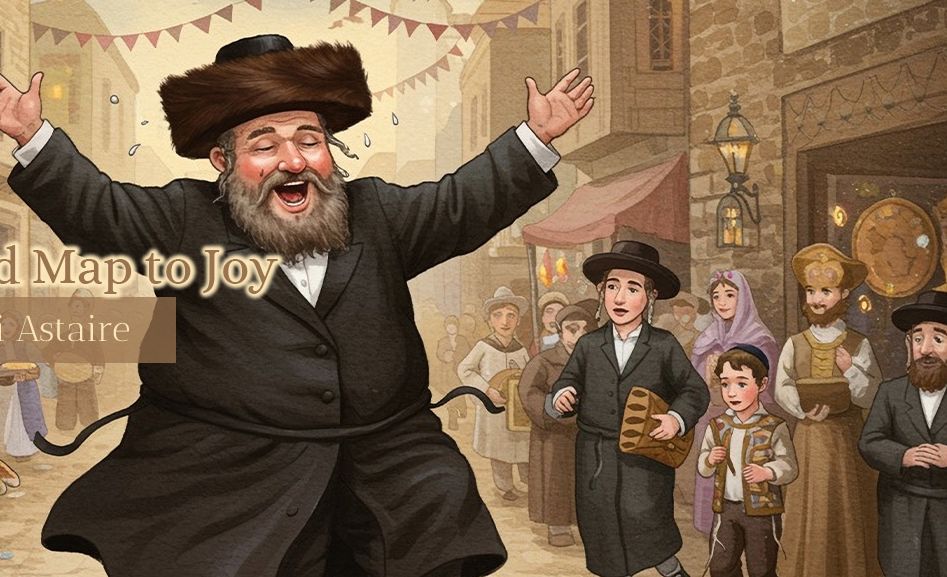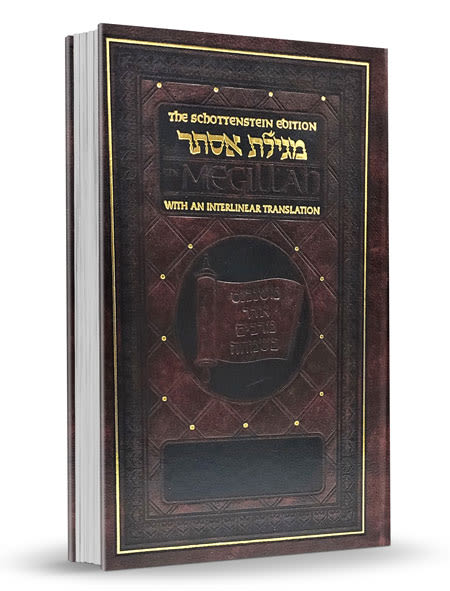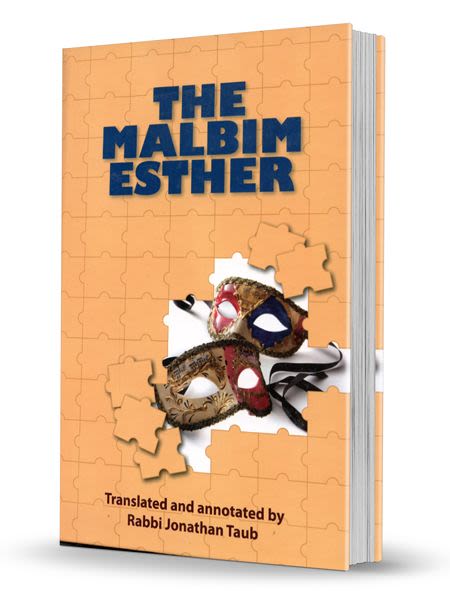
Megillat Esther
Read about the Purim story from Megillat Esther (Scroll of Esther). Megillat Esther is the only book in the Scriptures where God's name is never mentioned. The Purim miracle is hidden and ...

The Story of Purim
Megillat Esther (Scroll of Esther) is the only book in the Scriptures where God’s name is never mentioned. The Purim miracle is hidden and God’s providence is revealed through the incredible events. It is obvious that there are no coincidences in the story.
The Megillah relates the downfall of the vicious antisemite, Haman, a descendant of Amalek (may his name be blotted out!), the traditional enemy of the Jews. As Prime Minister of ancient Persia around 2300 years ago, Haman sought to murder all the Jews.
Events happen such that Haman himself plays a crucial role in the coronation of Queen Esther, after the beheading of former Queen Vashti. No one realizes that Esther is Jewish.
Haman, who has become a powerful man in the kingdom, is upset that Mordechai refuses to bow down to him. He succeeds in getting the King to authorize a royal decree to annihilate an unspecified nation that he claims is an enemy of the King. Haman he does not identify the nation, so that the King can later claim that he did not know that the decree was against the Jews.
Haman casts lots (called “pur“) to determine the day this nation would be annihilated. Meanwhile, Mordechai and Esther lead the Jews in a return to God, through prayer and fasting.
Esther invites the King and Haman to join her for dinner. At the end of the meal, the king offers, “half my kingdom for your wishes.” Esther, however, requests that the king and Haman come tomorrow to another dinner “and I’ll tell you then.”
Haman jubilantly returns from his meal with the King and Queen and then works through the night to construct gallows to hang his arch-enemy, Mordechai. Haman plans to appear before the King the following morning to denounce Mordechai.
Unknown to Haman, the King had been unable to sleep that night. He suspected that Haman was leading a coup against him. Desperate to fall asleep, he asked his servants to read from the Royal Chronicles. The book opened to a long forgotten story of how Mordechai discovered an assassination plot by two royal servants against the King.
The King asks his servants if Mordechai was rewarded for his loyalty. At that exact moment, Haman appears at the royal palace. Before Haman could make his request to hang Mordechai, the King orders Haman to dress Mordechai in royal garments and parade him through the capital city on a royal horse while proclaiming “This is what is done to the man the King wishes to honor.”
Immediately afterwards, a crestfallen Haman is whisked to the second royal dinner, hosted by Esther. At the dinner, Esther reveals to the King that she is Jewish. She tells him that Haman is an enemy of the King because he seeks to destroy the Jewish people.
The embarrassed and angry King storms out of the room. Haman begins to plead for his life. He “somehow” loses his balance and falls on the couch where Esther is reclining. The King returns to the royal dinner at just this moment. He is very upset by what he sees and blows up.
One of the royal ministers, Charvona, tells the King about the gallows that Haman had constructed for Mordechai, who saved the King’s life. The King orders Haman to be hanged on the gallows that were intended for Mordechai.
The King elevates Mordechai to Haman’s recently vacated position. Mordechai issues orders, with the King’s permission, allowing the Jews to fight against their enemies. On the thirteenth and fourteenth days of Adar the Jews won tremendous victories and were saved from the threat of total annihilation.
And Now, A Few Halachot
The Megillah is read twice, once on Purim evening and again on Purim day.
In certain ancient walled cities — Jerusalem is the primary example — Purim is observed a day later than everywhere else, on the 15th of Adar, instead of on the 14th of Adar. This is to commemorate that fact that in the ancient walled city of Shushan, where the battles between the Jews and their enemies extended for an additional day, the original Purim celebration was held not on the 14th but on the 15th of Adar. Therefore, in Jerusalem, the Megillah is read on Shushan Purim evening and then again on Shushan Purim day.
The entire Megillat Esther is read from a handwritten scroll called (what else?) a “megillah.”
The Megillah is read in a special tune to suit the narration of the Purim story. When the verse on the hanging of Haman’s ten sons is recited, the passage is read in one breath, “because,” the Talmud says, “their ghosts were given up all together.” It has also been suggested that the custom is due to the desire of avoiding the appearance of gloating over their deserved fate – a characteristic expression of Judaism’s attitude to the fall of an enemy.
The scroll is unrolled completely and the Megillah is folded so as to give it the form of a letter or dispatch.
All Jews over the age of six – both male and female –are obligated to hear the entire Megillah. To fulfill this mitzvah, one must hear every word of the text. It is customary to make lots of noise when Haman’s name is mention, to fulfill the mitzvah of erasing the memory of Amalek (may his name be blotted out!). We must, however, be quiet and listen carefully to the reader’s narration, so that we can hear every word and fulfill our obligation.
An entire tractate of the Talmud, called (what else?) Megillah, is devoted to the laws of Purim.











Tell us what you think!
Thank you for your comment!
It will be published after approval by the Editor.